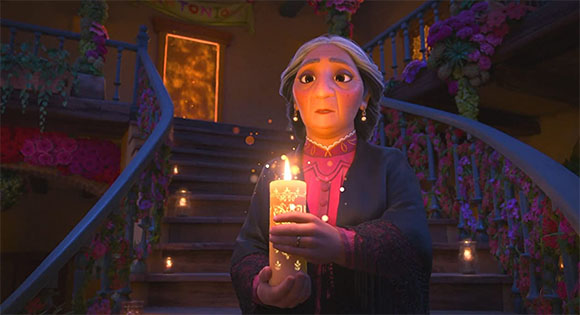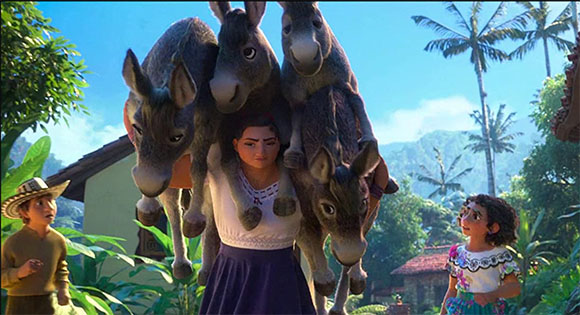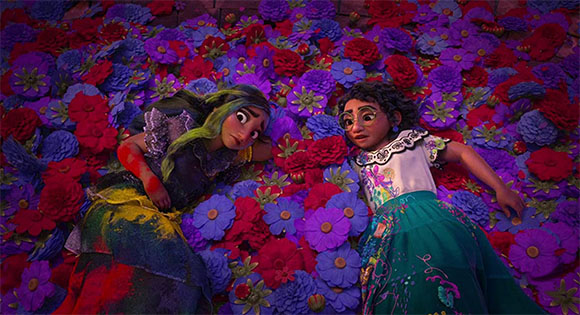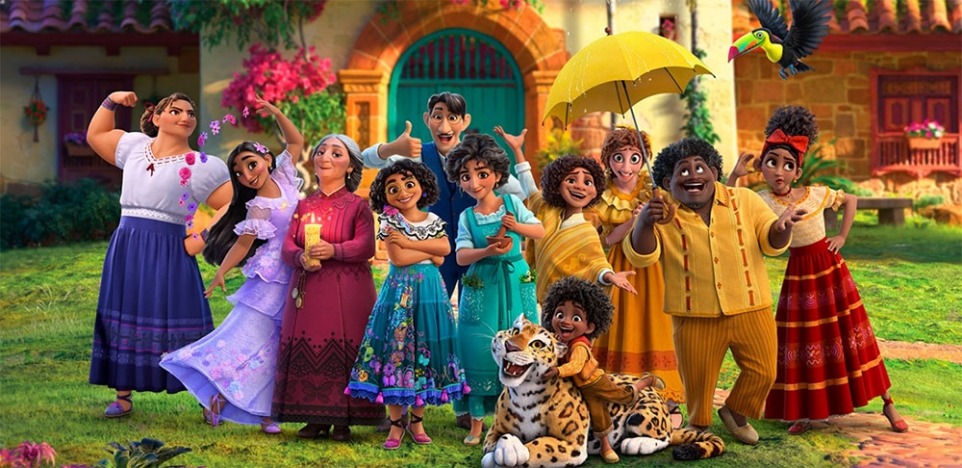Walt Disney Animation Studios has built decades of enchantment by mining fairy tales and legends for new permutations of the hero’s journey. The terms “Disney villain” and “Disney princess” immediately bring to mind countless indelible characters that have been permanently branded on the hearts of the young and old alike. It isn’t necessarily pejorative to say that Disney has a tried and true formula because this recipe, even in the studio’s least effective efforts, is still effortlessly affecting. Over the years, there have been some subtle attempts to stray from this blueprint, along with a much needed incorporation of marginalized identities into the still mostly lily white menagerie of personalities, but Disney most often chooses to abide by the money making mantra that, if it ain’t broke, it doesn’t need fixing. Disney has now even absorbed the Marvel Comics Universe, adding that company’s team of stock superheroes to its own vast star system.
So it comes as a bit of a shock that, even in the midst of continuing status quos, Disney’s latest offering, Encanto, completely, charmingly, and powerfully upends, dissects, and reimagines everything that has made the company rich. This tale of a close-knit family of superpowered personalities living in an enchantment-rich casita in Colombia dispenses with nearly everything that one expects in a Disney plot while delightfully winking at the ways that its humble twists endlessly defy audience assumptions. Some classic ingredients remain (most obviously, the infectious songs composed by Lin-Manuel Miranda, along with breathtakingly detailed animation), but with its revolutionary blend of exuberant open heartedness and uncommonly deep humanity, it’s no overstatement to say that Encanto is not only like no other Disney film but also actually like no film before it.

It all starts rather expectedly. A backstory is told: Years prior, the family Madrigal was forced to flee a genocidal attack on their home village and, in a moment of horror, patriarch Abuelo was disappeared by violent trackers while matriarch Abuela (voiced by María Cecilia Botero), carrying three tiny infants, was gifted with a miracle. The candle she was holding became an eternally burning flame that built a new home in the very place where her husband was ripped from her. Ever since, through the candle’s magic, every one of the Madrigal descendents has been granted their own superpower. These gifts run the gamut: for Luisa (voiced by Jessica Darrow), it’s exceptional strength; for Isabela (voiced by Diane Guerrero), it’s the ability to plant perfectly gorgeous flowers anywhere she pleases; every family member is a unique example of extraordinariness.
And then there is Mirabel (voiced by Stephanie Beatriz) who on the day of her special gifting ceremony was left without one. She is now an ordinary disappointment to her demanding Abuela, as her seeming unremarkableness threatens to topple the carefully built mythology of magic on which the entire family’s shaky success is founded. Equipped with a familiar “I Want” song, Mirabel at first might seem like any other Disney princess, but she proceeds to become something far more relatable and inspiring.

One of the most unexpected wonders of Encanto is how close to home it sticks. The questing that is so often inherent to animated films is almost entirely interior here, with the Madrigal family’s casita serving as a place of existential journeying and transformation. Those whom Mirabel must confront and come to understand are herself and her loved ones, especially her dear Abuela, who at first seems simply stern and unforgiving but is revealed to have untended trauma coursing through her veins.
Another marvel is that there is no personified villain. The fragile environment of Encanto is haunted by two main insidious threats: the violence that forces so many migrants to leave the homes they love, seeking space to not only live but thrive, and the Empire lies that urge so many oppressed peoples to kill their own spirits by attempting to appear exceptional in a racist, capitalistic world whose systems of scarcity are firmly stacked against their success. Mirabel is convinced that she is not gifted in a family that fears they must always appear superhuman or have no future, but that future and the message of Encanto both depend upon her refusal of that narrow categorization.

If this seems like heavy fare for a Disney feature, rest assured that the shadows are balanced by abundant beauty. With Mirabel’s gifts of growing compassion and self-possession leading the way, the entire Madrigal family learns that the ties that bind them are far deeper and lasting than their surface superpowers. Like so many who have experienced displacement and trauma, they must regain trust in the fact that acknowledging their wounds won’t weaken them. Their casita can only be as strong as their willingness to embrace one another’s whole selves, welcome honest humility, and allow their community to help rebuild their home.
Ultimately, the prophetic potential of embodied empathy and interdependence are the story’s main takeaways, doing away with the need for incredible heroes and lifting up the dynamic possibilities present in nurturing communal healing and collective accountability. In the end, Encanto isn’t about one exceptional star shining, but an entire people igniting with active, miraculous hope. It’s a radical reminder every person in the world, no matter how young or old, needs to feel burning inside their own yearning heart.
